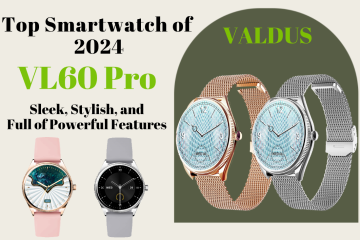Top Factors to Consider When Partnering with A Smartwatch Manufacturer: A Comprehensive Guide
In the competitive landscape of wearable technology, choosing the right partner to manufacture your smartwatches is critical. The right manufacturer can help you deliver innovative, high-quality products that meet market demands and stand out. However, the selection process involves various considerations to ensure a successful partnership. This guide delves into the top factors to consider when partnering with a smartwatch manufacturer.
- Understanding Your Business Needs
- Manufacturer's Expertise
- Quality and Reliability
- Customization and Flexibility
- Production Capacity and Scalability
- Technological Innovation
- Cost Considerations
- Compliance and Certification
- Supply Chain Management
- Communication and Collaboration
- After-Sales Support
- Reputation and References
- Environmental and Ethical Practices
- Legal and Contractual Considerations
- Case Studies of Successful Partnerships
- Future Trends in Smart Watch Manufacturing
- FAQs
- Conclusion
Understanding Your Business Needs
Before embarking on a partnership with a smartwatch manufacturer, it’s essential to have a clear understanding of your business needs. Defining your product requirements and aligning them with your business goals are crucial steps.
- Defining Your Product Requirements
Determine the specific features and functionalities you want in your smartwatch. This includes deciding on the design, hardware specifications, software capabilities, and any unique features that will set your product apart from the competition.
- Aligning with Business Goals
Ensure that your smartwatch aligns with your overall business strategy. Whether you’re targeting fitness enthusiasts, tech-savvy users, or a niche market, your product should resonate with your target audience and support your brand’s mission.

Manufacturer's Expertise
The manufacturer's expertise plays a significant role in the success of your product. Industry experience and technological capabilities are key indicators of a reliable partner.
- Industry Experience
Choose a manufacturer with a proven track record in the smartwatch industry. Experienced manufacturers understand market trends, consumer preferences, and common challenges, enabling them to provide valuable insights and solutions.
- Technological Capabilities
Evaluate the manufacturer’s technological capabilities. This includes their ability to integrate the latest technologies, such as advanced sensors, health monitoring features, and connectivity options, into your smartwatch.

Quality and Reliability
Quality and reliability are paramount when it comes to wearable technology. Ensuring rigorous quality control measures and product reliability is essential.
- Quality Control Measures
Investigate the manufacturer’s quality control processes. Look for certifications and standards that demonstrate their commitment to high-quality production, such as ISO certification.
- Product Reliability
Reliability is critical for user satisfaction and brand reputation. Ensure the manufacturer has a history of producing durable and reliable smartwatches that perform well over time.
Customization and Flexibility
A manufacturer’s ability to offer customization and flexibility can significantly impact your product’s success in the market.
- Design Customization Options
Look for manufacturers that offer extensive design customization options. This includes the ability to create unique watch faces, custom bands, and personalized software interfaces that cater to your brand’s identity.
- Flexibility in Production
Flexibility in production allows for adjustments and changes throughout the manufacturing process. This is especially important if you anticipate modifications based on market feedback or evolving trends.

Production Capacity and Scalability
Assessing the manufacturer’s production capacity and scalability ensures they can meet your current and future demands.
- Manufacturing Capacity
Ensure the manufacturer can produce the volume of smartwatches you require. This is particularly important for large-scale orders or expanding your product line.
- Scalability for Growth
Consider the manufacturer’s ability to scale production as your business grows. A scalable manufacturing partner can accommodate increased demand and support your business’s long-term growth.
Technological Innovation
Partnering with an innovative manufacturer ensures your smartwatch incorporates the latest advancements in technology.
- Integration of Latest Technologies
Choose a manufacturer that stays ahead of technological trends. This includes the ability to integrate cutting-edge features such as AI, advanced health metrics, and seamless connectivity.
- Innovation in Design and Functionality
Innovative design and functionality can distinguish your smart watch in a crowded market. Look for manufacturers willing to push the boundaries and create unique, forward-thinking products.

Cost Considerations
Balancing cost and quality is crucial in selecting a manufacturing partner.
- Budget Alignment
Ensure the manufacturer can deliver a product within your budget without compromising on quality. Transparent pricing and detailed cost breakdowns help in making informed financial decisions.
- Cost Efficiency
Evaluate the manufacturer’s cost efficiency. This includes their ability to optimize production processes, source materials cost-effectively, and minimize waste.

Compliance and Certification
Compliance with industry standards and obtaining necessary certifications are critical for product safety and market acceptance.
- Industry Standards Compliance
Verify that the manufacturer adheres to relevant industry standards. Compliance with standards such as CE, FCC, and RoHS ensures your product meets safety and quality requirements.
- Necessary Certifications
Ensure the manufacturer can obtain the necessary certifications for your smartwatch. This includes certifications for health monitoring features, connectivity standards, and environmental regulations.

Supply Chain Management
Effective supply chain management ensures timely delivery and cost-effective production.
- Efficient Supply Chain
A well-managed supply chain minimizes delays and reduces costs. Evaluate the manufacturer’s supply chain processes, including their relationships with suppliers and logistics providers.
- Logistics and Distribution
Consider the manufacturer’s logistics and distribution capabilities. Efficient distribution ensures your smartwatches reach the market promptly and in good condition.

Communication and Collaboration
Effective communication and collaboration are vital for a successful partnership.
- Effective Communication Channels
Establish clear communication channels with the manufacturer. Regular updates and open lines of communication help in addressing issues promptly and keeping the project on track.
- Collaboration Tools and Techniques
Utilize collaboration tools and techniques to streamline the manufacturing process. This includes project management software, regular meetings, and collaborative platforms.

After-Sales Support
After-sales support is essential for customer satisfaction and brand loyalty.
- Warranty and Maintenance Services
Ensure the manufacturer offers robust warranty and maintenance services. This includes prompt repairs, replacements, and support for any product issues.
- Customer Support Systems
A strong customer support system can enhance the user experience. Choose a manufacturer that provides comprehensive customer support, including troubleshooting and user guidance.

Reputation and References
The manufacturer’s reputation and references provide insights into their reliability and performance.
- Manufacturer Reputation
Research the manufacturer’s reputation in the industry. Look for companies with a history of successful partnerships and positive feedback from clients.
- Client Testimonials and Case Studies
Review client testimonials and case studies. These provide real-world examples of the manufacturer’s capabilities and performance.

Environmental and Ethical Practices
Consider the manufacturer’s commitment to environmental and ethical practices.
- Sustainability Initiatives
Choose a manufacturer that prioritizes sustainability. This includes using eco-friendly materials, reducing waste, and implementing green manufacturing processes.
- Ethical Manufacturing Practices
Evaluate the manufacturer’s ethical practices. Fair labor practices and corporate social responsibility initiatives reflect a commitment to ethical standards.

Legal and Contractual Considerations
Clear legal and contractual arrangements protect both parties in the partnership.
- Clear Contracts
Ensure all agreements are documented in clear, comprehensive contracts. This includes terms of production, delivery schedules, pricing, and quality standards.
- Intellectual Property Protection
Protect your intellectual property by including clauses in the contract that safeguard your designs, technologies, and proprietary information.

Case Studies of Successful Partnerships
Learning from successful partnerships can provide valuable insights.
- Apple and Its Manufacturers
Apple’s partnerships with manufacturers like Foxconn and Pegatron are exemplary. These partnerships are built on stringent quality standards, technological innovation, and efficient supply chain management.
- Fitbit’s Manufacturing Strategies
Fitbit’s collaboration with manufacturers focuses on precision and reliability. Their emphasis on detailed health metrics and robust design has helped them maintain a competitive edge.
Future Trends in Smart Watch Manufacturing
Staying informed about future trends helps in making forward-looking decisions.
- Emerging Technologies
Keep an eye on emerging technologies such as AI, machine learning, and advanced health sensors. Integrating these technologies can future-proof your smartwatch.
- Market Predictions
Understand market predictions and trends. This includes anticipating consumer preferences and technological advancements that will shape the future of smartwatches.

FAQs
1. What are the key factors in choosing a smartwatch manufacturer?
The manufacturer’s expertise, quality control measures, customization options, production capacity, technological capabilities, cost efficiency, compliance with industry standards, and environmental and ethical practices are key factors.
2. How do I assess the technological capabilities of a manufacturer?
Evaluate their ability to integrate the latest technologies, their experience with advanced sensors and health monitoring features, and their track record of innovation.
3. What role does supply chain management play in manufacturing?
Efficient supply chain management ensures timely delivery, cost-effective production, and minimal delays, crucial for maintaining market competitiveness.
4. How important is customization in smartwatch manufacturing?
Customization is vital for differentiating your product in the market. It allows you to create unique designs and features that cater to specific customer preferences.
5. What are the compliance requirements for smartwatches?
Smartwatches must comply with industry standards such as CE, FCC, and RoHS. Additionally, health monitoring features may require specific certifications.
6. How can I ensure effective communication with the manufacturer?
Establish clear communication channels, use collaboration tools, and schedule regular updates and meetings to address any issues promptly and keep the project on track.

Conclusion
Choosing the right smartwatch manufacturer is a complex yet crucial decision that requires a thorough evaluation of various factors. You can form a successful partnership by understanding your business needs, assessing the manufacturer’s expertise, and considering factors such as quality, customization, production capacity, and cost. Additionally, paying attention to environmental and ethical practices, legal considerations, and effective communication will ensure a smooth and productive collaboration. Ultimately, the right manufacturer will help you deliver a high-quality product that meets market demands and supports your business growth.



